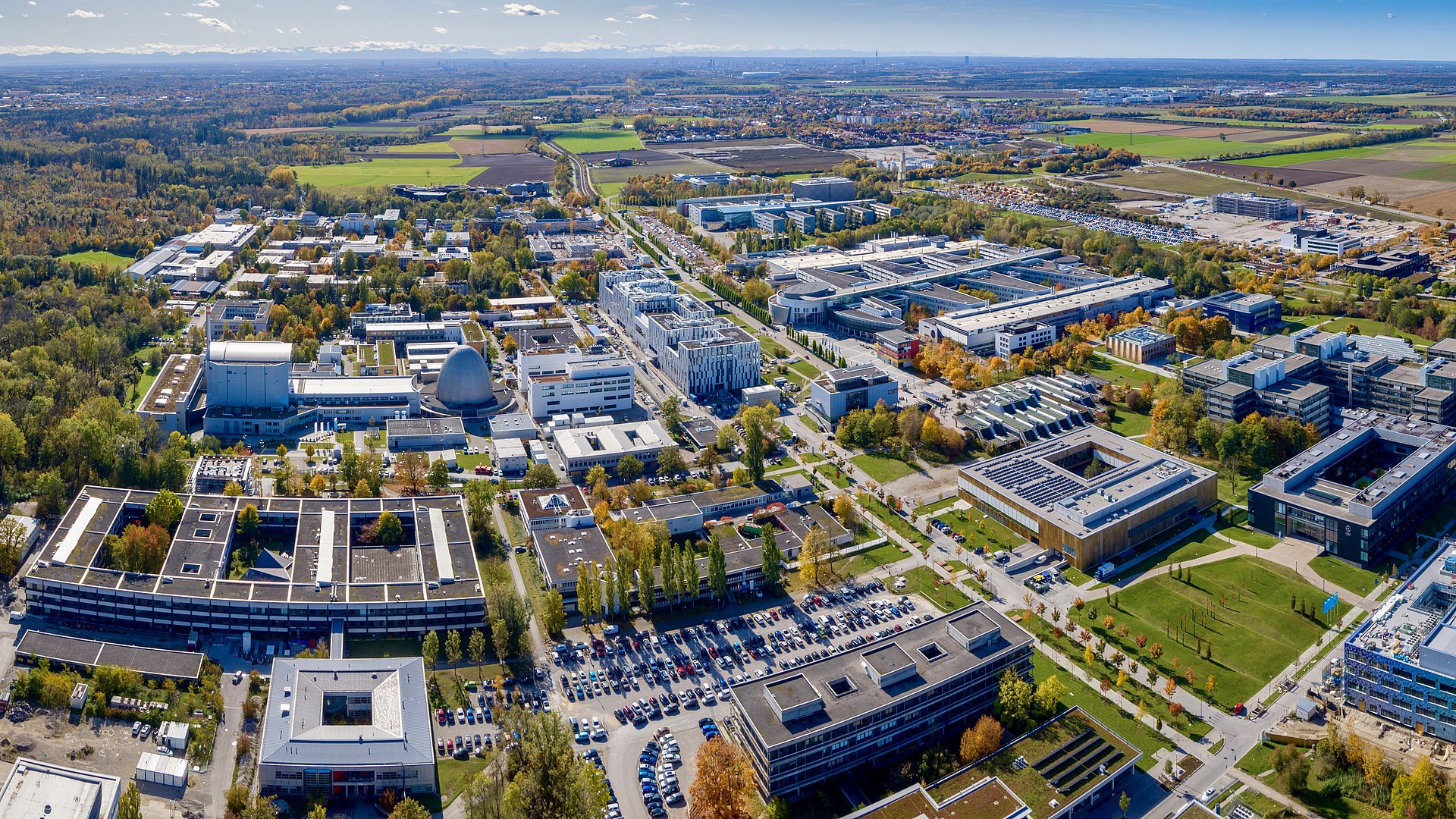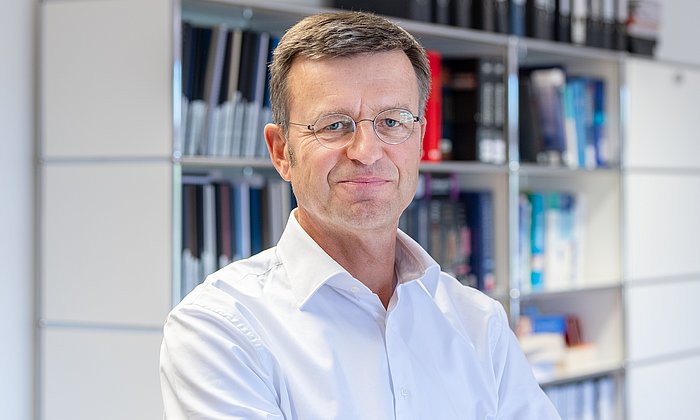Natural sciences, medicine, and social sciences are at the forefront
TUM to receive funding for seven Clusters of Excellence

Four existing clusters were able to prove themselves in the international review process. They will be funded for a further seven years with a future-oriented focus on energy conversion, quantum technologies, neurological diseases, and the origin of the universe. In addition, there are three new Clusters of Excellence that were able to convince the international review panels with leading research approaches in the fields of nucleic acid research, biosystem design and societal transformation through technologies.
"Our excellent scientists and their strong partners once again underline the leading position of Munich science. This has created the conditions for us to be able to compete for the title of University of Excellence for the fourth time in a row since 2006," says TUM President Prof. Thomas F. Hofmann. "Once again, our team spirit and the trustful cooperation between the two Munich universities with the Max Planck Institutes and the Helmholtz Zentrum München, which is based on trust and tailored to their respective strengths, has proven to be the right strategic approach to excellence research," emphasizes Hofmann.
Bavaria's Science Minister Markus Blume says: "Gigantic excellence success for our Munich universities: With seven applications each, including six joint ones, TUM and LMU are successful in the race for the Clusters of Excellence. One thing is clear: Munich is the Mecca of excellence in Germany and sets standards for innovation in Europe. TUM and LMU are the best universities in Germany, as they are proving once again here. Munich is particularly radiant today - and the whole of Bavaria is a big winner: all Bavarian cluster applications were successful. We have doubled the number of clusters to twelve. No other state has gained more. Perseverance pays off! With the High-Tech Agenda Bavaria, we have consistently invested in science and research and thus substantially strengthened Bavaria as a science location - the HTA is a real excellence booster."
Approved Clusters of Excellence at the TUM:
- Cluster for Nucleic Acid Research and Technologies (NUCLEATE)
The cluster aims to accelerate the rapid progress in nucleic acid research and enable groundbreaking discoveries and therapeutic breakthroughs in biomedicine. With interdisciplinary approaches, NUCLEATE focuses on fundamental questions about new functions and key mechanisms of modification and homeostasis of nucleic acids, through to the development of new nucleic acid technologies and applications in medicine.
In addition to the Julius Maximilians University Würzburg, the Ludwig Maximilians University Munich (LMU) and the TUM as joint applicants, the Max Planck Institute of Biochemistry, Helmholtz Munich, and the Helmholtz Institute for RNA-based Infection Research (Würzburg) are also involved in NUCLEATE. The spokesperson on the TUM side is Prof. Stefan Engelhardt (Medicine).
- Biosystem Design Munich (BioSysteM)
This cluster aims to develop self-organizing molecular and cellular systems with programmable, life-like properties. The focus of BioSysteM ranges from biomolecular machines for biosynthesis and intelligent materials to biomedical microrobots and pattern-based therapeutics to the control of cell differentiation and organ formation as the basis for a new generation of revolutionary applications in biomedicine.
In addition to TUM and LMU as joint applicants, the Max Planck Institute of Biochemistry and Helmholtz Munich are also involved in BioSysteM. The spokesperson on the TUM side is Prof. Friedrich Simmel (Biophysics).
- Munich Center for Transformative Technologies and Social Change (TransforM)
On the one hand, transformative technologies are seen as the key to significant challenges such as climate change, energy, mobility, and healthcare provision; on the other hand, they are causing increasing innovation skepticism and public controversy. As an interdisciplinary social science cluster, TransforM aims to rethink theories, methods, and practices of participation, legitimacy, responsibility, security, and resilience in relation to transformative technologies for dynamically changing societies. At the same time, the cluster wants to research how these social concerns can be anchored more effectively in innovation processes to harmonize technological progress and economic opportunities with future social, ecological, and political interests.
In addition to the TUM as the applicant, the LMU, the Max Planck Institute for Innovation and Competition, the Leibniz Institute for Economic Research (ifo Institute, Munich), the Munich School of Politics and Public Policy (HfP), and the Leibniz Center for European Economic Research (ZEW, Mannheim) are involved in TransforM. The spokesperson on the TUM side is Prof. Sebastian Pfotenhauer (Innovation Research).
- Fundamentals of energy conversion (e-conversion)
The cluster researches the fundamental processes of converting and storing renewable energies, which are at the heart of the energy transition. The aim is to further develop fundamental findings from the first funding phase in order to combine transformative energy concepts, energy conversion, and energy storage into innovative bridging technologies. The focus is on multi-particle systems, complex materials, and dynamic interfaces, as well as AI-supported automation and high-throughput methods to accelerate the development of innovative energy concepts and materials many times over.
In addition to TUM and LMU as joint applicants, the Max Planck Institute for Solid State Research (Stuttgart), the Fritz Haber Institute of the Max Planck Society (Berlin), and the Deutsches Museum are also involved in e-conversion. The spokespersons on the TUM side are Prof. Jennifer Rupp (Chemistry) and Prof. Ian Sharp (Physics).
- Munich Center for Quantum Science and Technology (MCQST)
MCQST researches the scientific foundations of complex quantum systems and creates the technological basis for quantum technology, a key future technology of the 21st century. The researchers address important fields of application, ranging from quantum computers, powerful quantum information systems, and quantum sensors to novel quantum materials. In the second funding phase, the Cluster of Excellence aims to expand basic research into the phenomenon of quantum entanglement and use it for innovative applications in the fields of data processing, communication, metrology and sensor technology, materials science, chemistry, and medicine.
In addition to TUM and LMU as joint applicants, the Max Planck Institute of Quantum Optics, the Walther Meissner Institute of the Bavarian Academy of Sciences and Humanities, and the Deutsches Museum are also involved in MCQST. The spokespersons on the TUM side are Prof. Barbara Kraus (Physics) and Prof. Ignacio Cirac (Physics / MPI for Quantum Optics).
- From the origin of the universe to the first building blocks of life (ORIGINS)
The Cluster of Excellence researches the formation and development of the universe and its structures - from galaxies, stars, and planets to the building blocks of life. ORIGINS investigates the path from the smallest particles in the early universe to the emergence of biological systems. In the second funding phase, the researchers aim to make groundbreaking discoveries in nuclear and particle physics, astrophysics, astrogeophysics, cosmology, and biophysics. Examples include the research for conditions for possible extraterrestrial life and a deeper understanding of dark matter.
In addition to TUM and LMU as joint applicants, the Max Planck Institutes for Astrophysics, Biochemistry, Extraterrestrial Physics, Physics, and Plasma Physics, as well as the European Southern Observatory (ESO), the Leibniz Supercomputing Centre, and the Deutsches Museum are involved in ORIGINS. The spokesperson on the TUM side is Prof. Stefan Schönert (Physics).
- Munich Cluster for Systems Neurology (SyNergy)
The "SyNergy" cluster investigates how complex neurological diseases such as multiple sclerosis, stroke, or Alzheimer's develop. Using systems neurology as a new interdisciplinary approach, researchers can map the many underlying processes of neurodegenerative, neuroimmunological, and neurovascular diseases and develop strategies for novel therapies. In the new funding phase, the Cluster of Excellence aims to research the effects of the brain's energy supply, investigate immune reactions in more detail, better understand the resistance of neurons to disease, and develop repair mechanisms for damaged cells, among other things.
In addition to TUM and LMU as joint applicants, the German Center for Neurodegenerative Diseases (DZNE), Helmholtz Munich, and the Max Planck Institutes of Biochemistry, Biological Intelligence, and Psychiatry are also involved in SyNergy. The spokesperson on the TUM side is Prof. Thomas Misgeld (Medicine).
What is the Excellence Strategy?
With the Excellence Strategy, the federal and state governments support top scientific achievements, research cooperation, and the development of the profile of German universities. The funding program consists of two funding lines, the Clusters of Excellence, in which universities and research institutions conduct joint research, and the Universities of Excellence, whose leading position in research is to be expanded. Only universities that have been successful with at least two clusters of excellence can apply for additional funding as a University of Excellence. TUM once again fulfills this requirement.
TUM has already been successful three times in all funding lines of the Excellence Initiative (2006, 2012) and the Excellence Strategy (2019) of the German federal and state governments. Now it is heading for the funding program for top German universities for a fourth time. The decision on the title of University of Excellence will be made in 2026. The Excellence Strategy is implemented by the German Research Foundation (DFG) and the German Council of Science and Humanities (Wissenschaftsrat). Both oversee the selection and regular evaluation of the universities and the funded research projects.
This article was published in the 02/2025 issue of the new TUM Magazine.
Technical University of Munich
Corporate Communications Center
- Ulrich Meyer
- presse@tum.de
- Teamwebsite



